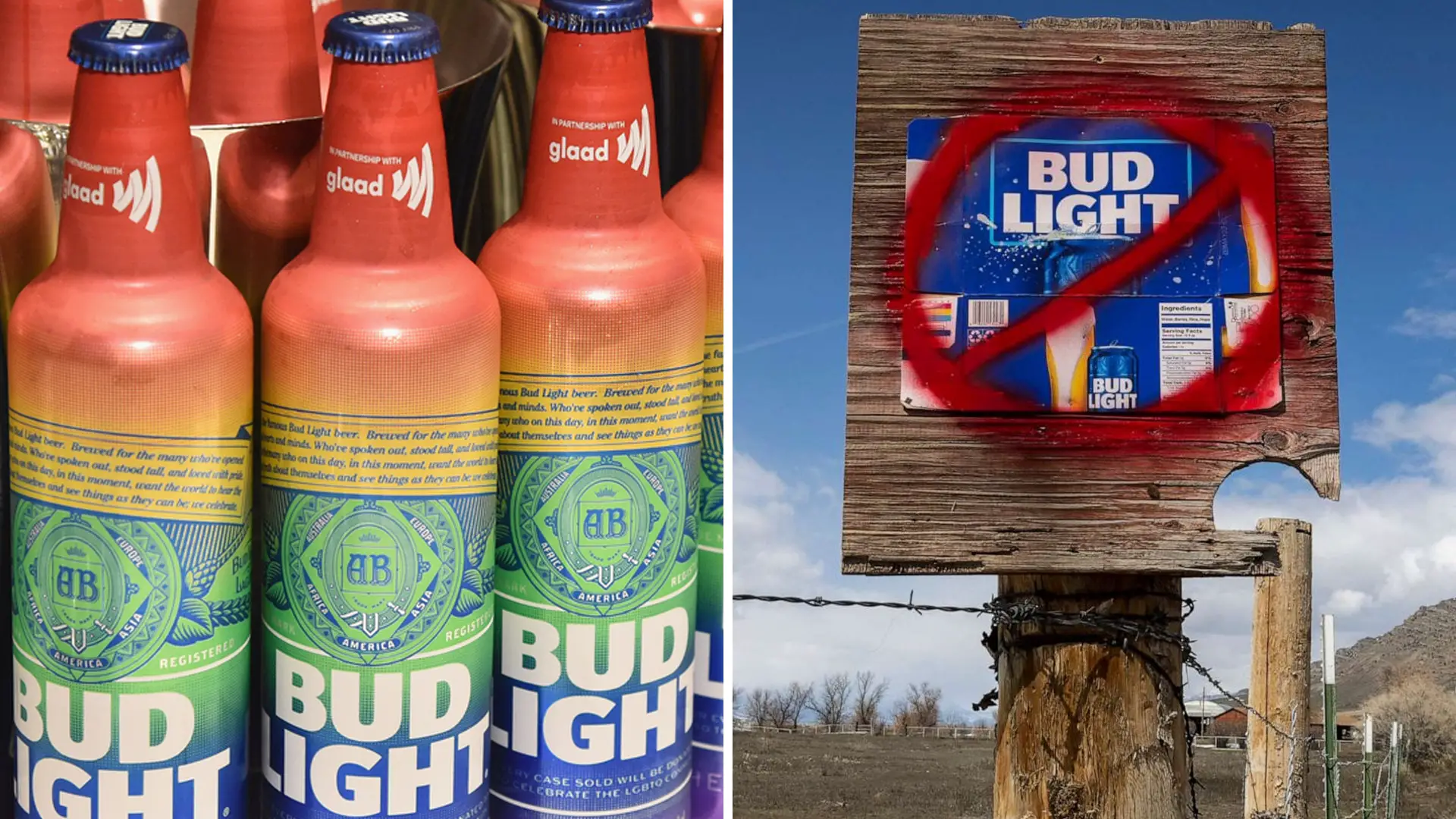Amid a world increasingly polarized, businesses often find themselves walking a tightrope, balancing between social responsibility and business viability. Anheuser-Busch, the titan of the brewing industry, and its flagship brand, Bud Light, have recently experienced this balancing act first-hand. Despite a significant backlash from their controversial marketing campaign, they remain steadfast in their ‘woke’ stance, reflecting an interesting evolution in their brand narrative.
Late in the Spring, Bud Light was at the center of a tumultuous controversy involving their promotional campaign during the NCAA March Madness Tournament. The campaign featured Dylan Mulvaney, a transgender TikTok influencer, known for his “Days of Girlhood” series where he shared his gender transition journey. The goal was to align with a progressive stance and connect with a younger demographic. The company, however, underestimated the backlash it would face from a segment of its traditional consumer base.
As a result, Bud Light experienced a sharp decline in sales, contributing to a staggering $15.7 billion decrease in Anheuser-Busch InBev’s overall value. This backlash led to an 11.9% drop in the company’s shares since the beginning of April and sparked calls for a boycott of not only Bud Light but also Anheuser-Busch as a whole. It was a wake-up call for the company, revealing the risks involved in taking a stand that might alienate a significant portion of its consumers.
Nevertheless, Bud Light has shown resilience amid these challenging circumstances, remaining unwavering in its ‘woke’ stance. The brand’s determination in upholding its progressive values, even in the face of a financial downturn, is a testament to its commitment to diversity and inclusion. Some critics labeled this as “reckless corporate virtue signaling,” but it could also be seen as a long-term strategy aimed at resonating with a younger and more diverse audience.
To weather this storm, Bud Light has had to reassess its strategies without abandoning its core values. The company has demonstrated a commitment to transparency and dialogue. Despite a segment of the public demanding a retraction of the campaign and a return to more traditional marketing methods, Bud Light has opted to stand firm. It recognizes the importance of inclusivity and representation and is willing to endure short-term losses for long-term gain.
The introduction of a competitive price point of $3.49 is another strategic move to mitigate the situation and rekindle its relationship with disenchanted consumers. This decision reflects an understanding of the brand’s diverse consumer base, offering a quality product at a reasonable price as a way to demonstrate their commitment to their customers.
Yet, the challenge still looms. Bud Light must continue to strive for a balance between its new ‘woke’ stance and its established consumer base’s expectations. The company’s resilience in these trying times is commendable, but it must navigate the backlash carefully. An inclusive approach should not alienate any demographic, and finding that sweet spot is the company’s biggest challenge.
The controversy offers a valuable lesson to corporations worldwide on the dynamics of integrating social responsibility into their branding. As Bud Light continues on its path, other businesses are undoubtedly watching and learning. The brewing giant’s journey serves as a real-time case study in corporate ‘wokeness,’ providing insights into both its perils and potentials.
In conclusion, despite the controversy and the significant financial backlash, Bud Light remains committed to its progressive stance. Whether this strategy will pay off in the long run is yet to be seen. One thing, however, is clear: Bud Light is determined to forge a path that aligns with its commitment to diversity and inclusivity, even when the road is fraught with challenges.
Through it all, Bud Light continues to offer a consistent, quality brew at an affordable price. The brand’s ‘wokeness’ does not detract from its dedication to its product and consumers. Instead, it appears to reflect a belief that businesses have a role to play in societal progression. They are making a calculated bet that, over time, their inclusive marketing strategy will attract a broader, more diverse consumer base, ultimately leading to a stronger brand and increased sales.
Bud Light’s unwavering stand reminds us that the corporate world is not isolated from societal issues. Businesses today are increasingly expected to take a stance on such matters, and their decisions can significantly impact their reputation and financial bottom line. However, it’s also a reminder that being ‘woke’ is not a one-size-fits-all approach. It requires a nuanced understanding of the brand’s identity, its consumer base, and the broader socio-political environment.
Even in the face of significant financial losses, Bud Light’s decision to stick to its guns is a testament to the company’s belief in its principles. It signifies a conscious move towards a more inclusive brand image, hoping to appeal to a new generation of consumers while trying to regain the trust of those disillusioned by the recent campaign.
As we move forward, the impact of Bud Light’s decision will continue to unfold. It will undoubtedly have a profound effect on the beer industry and potentially shape the future of advertising and marketing strategies in the corporate world. Despite all odds, Bud Light has made its choice and is sticking to it. Only time will tell whether this bet will pay off, but for now, Bud Light continues to champion inclusivity and representation in its own way, embodying the spirit of ‘wokeness’ in a world that continues to evolve.

